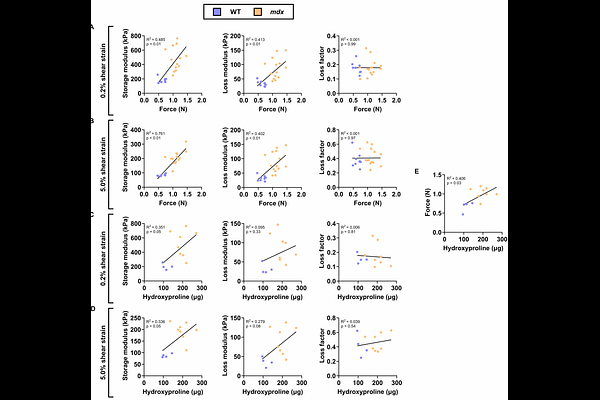Dystrophin-deficiency stiffens skeletal muscle and impairs elasticity: an in vivo rheological examination

Dystrophin-deficiency stiffens skeletal muscle and impairs elasticity: an in vivo rheological examination
Devananthan, P.; Craven, R.; Joe, K.; Major, G. S.; Chen, J.; Kabaliuk, N.; Lindsay, A.
AbstractLoss of dystrophin alters the biomechanical properties of skeletal muscle, including stiffness. Stiffness is typically assessed passively in excised muscle, but here we present the development of an in vivo rheological method to assess the mechanical properties of the tibialis anterior muscle in anaesthetised wild-type (WT; dystrophin-positive) and mdx (dystrophin-deficient) mice using a custom-designed apparatus compatible with an MCR 702 rheometer. To characterise stiffness, compressibility, and elasticity, rheological testing included compressive and shear strain protocols, along with recovery and assessments following contraction-induced strength loss. Relative to WT mice, the tibialis anterior of mdx mice were thicker, stiffer, and less compressible. These genotype differences aligned with hydroxyproline content, a marker of fibrosis. Post-deformation recovery was impaired in mdx mice under shear strain, and eccentric contraction-induced injury further increased stiffness and energy dissipation in the tibialis anterior of mdx mice. This rheological platform maintained the in vivo integrity of the tibialis anterior muscle of mice and consistently showed that storage and loss moduli can sensitively detect the detrimental impact of dystrophin-deficiency on the in vivo viscoelastic properties of skeletal muscle. This rheological platform, termed myomechanical profiling could be a viable and sensitive tool for assessing muscle quality and mechanical behaviour of skeletal muscle where viscoelastic properties are affected by disease.